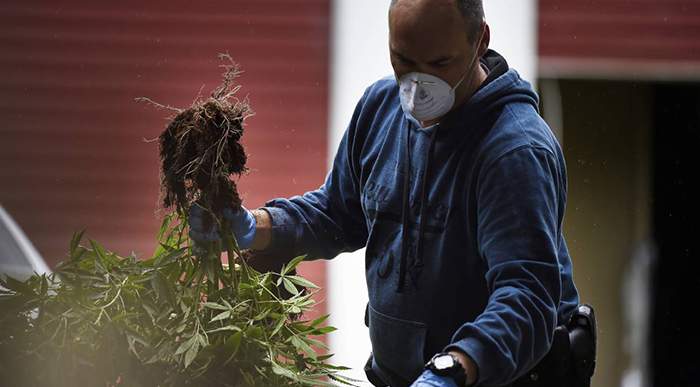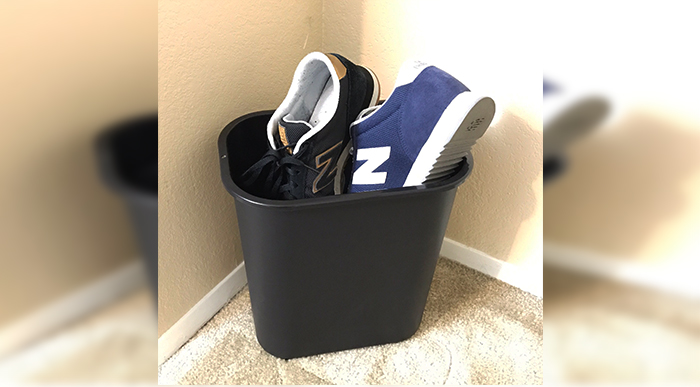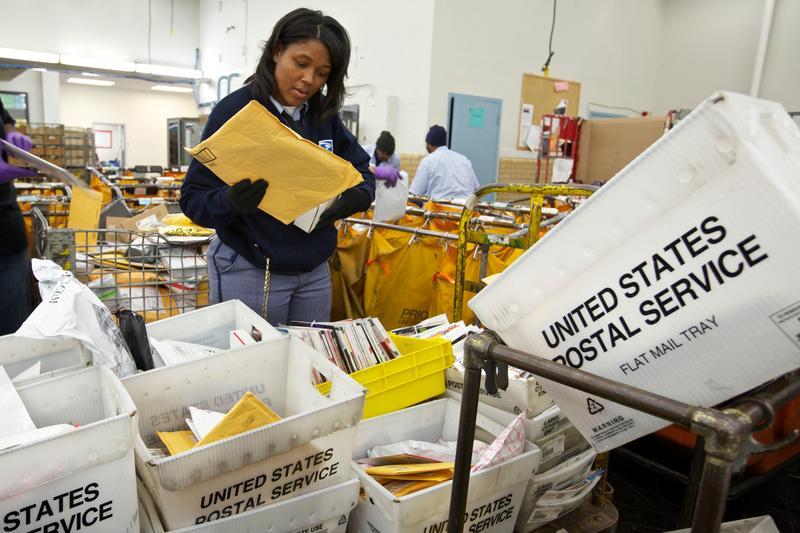With less than a month before the election that will determine whether California legalizes recreational use, the state’s cannabis landscape is in limbo.
“Law enforcement is still going to town,” says Northern California lawyer Heather Burke.
A couple examples: A Redding area man filed a claim against the Shasta County Sheriff’s Office, claiming it violated his civil right by destroying his medical marijuana collective garden this past summer. This was the second time in five years that law enforcement had destroyed his garden. The claim challenges 2014’s measure, where voters outlawed outdoor grows in the unincorporated California county.
In San Diego, police raided a marijuana dispensary in North Park, citing an operation to close down illegally operated marijuana shops in the city. SDPD officers say there are 20 other illegal marijuana shops in San Diego they are working to shut down, and they will continue their operation until no illegal dispensaries are left in town. The city began promoting the legal dispensaries.
“There are three different elements one must comply with under current California law,” Burke says. “Every patient-member must have lawful marijuana recommendation by a physician, first off. They also must have actually formed a collective or cooperative. The third is that they must be nonprofit.”
Burke expresses that the general public’s reading of current cannabis laws, and that of law enforcement’s, often differ. “What California as a society has extrapolated about marijuana-related conduct is different than what law enforcement understand to be the current cannabis law in California,” she says. For instance, “law enforcement still arrest on the basis that patients can only transfer cannabis to other members of their collective or co-op. Otherwise the act is illegal. Unfortunately, that’s arguably true under the current law, but most people don’t know that.”
“Most—if not all—California cops believe that commercial cannabis activity is illegal under the current legal regime [even if the commercial activity is not-for-profit],” Burke says.
She distinguishes the letter of the law from the spirit of the law. “That’s the rub: What the law is, and what law enforcement thinks the law is, don’t match.”
Thus, there’s been no reduction in criminal cases being investigated and prosecuted. “We have, though, seen a dropoff in felony convictions,” she says, “unless there are guns, narcotics or gang activity involved.”
Fewer small-scale marijuana cases are resulting in arrests, particularly when no one gives a statement about their finances to the cops. Bay Area lawyer, Matt Kumin, concurs.
“Currently, there is no completely safe route,” Kumin says. “You must be part of a cooperative in California. Then, if the DA files criminal charges, an employee or the operator can raise a defense and will often get charges dismissed based on current case law.” One argument the DAs make, and which is sometimes difficult to defend against, is that the cooperative operator profits from providing medical cannabis.
“Getting a return on investment will be an automatic conviction under California law,” Kumin says, adding that police are still arresting people despite their attempts to come into compliance with these rules.
This quagmire resulted in the passing of the Medical Cannabis Recreation and Safety Act (MCRSA), a legal framework to abolish the collective/cooperative defense in early 2019.
“Once the collective/cooperative defense is abolished,” Burke says, “then all conduct needs to have a local permit and state license in order to be lawful. It will be much more clear. For better or worse, the gray area is going to be a thing of the past.” For now, the old defense persists.
“Once someone is arrested and charged, we file a motion with the court asserting our defendants have a registered cooperative, boxes of recommendations for its patient-members, and pay reasonable salaries. It’s important the accused have a set of books that demonstrates such. A DA will have a difficult time overcoming this evidence.”











